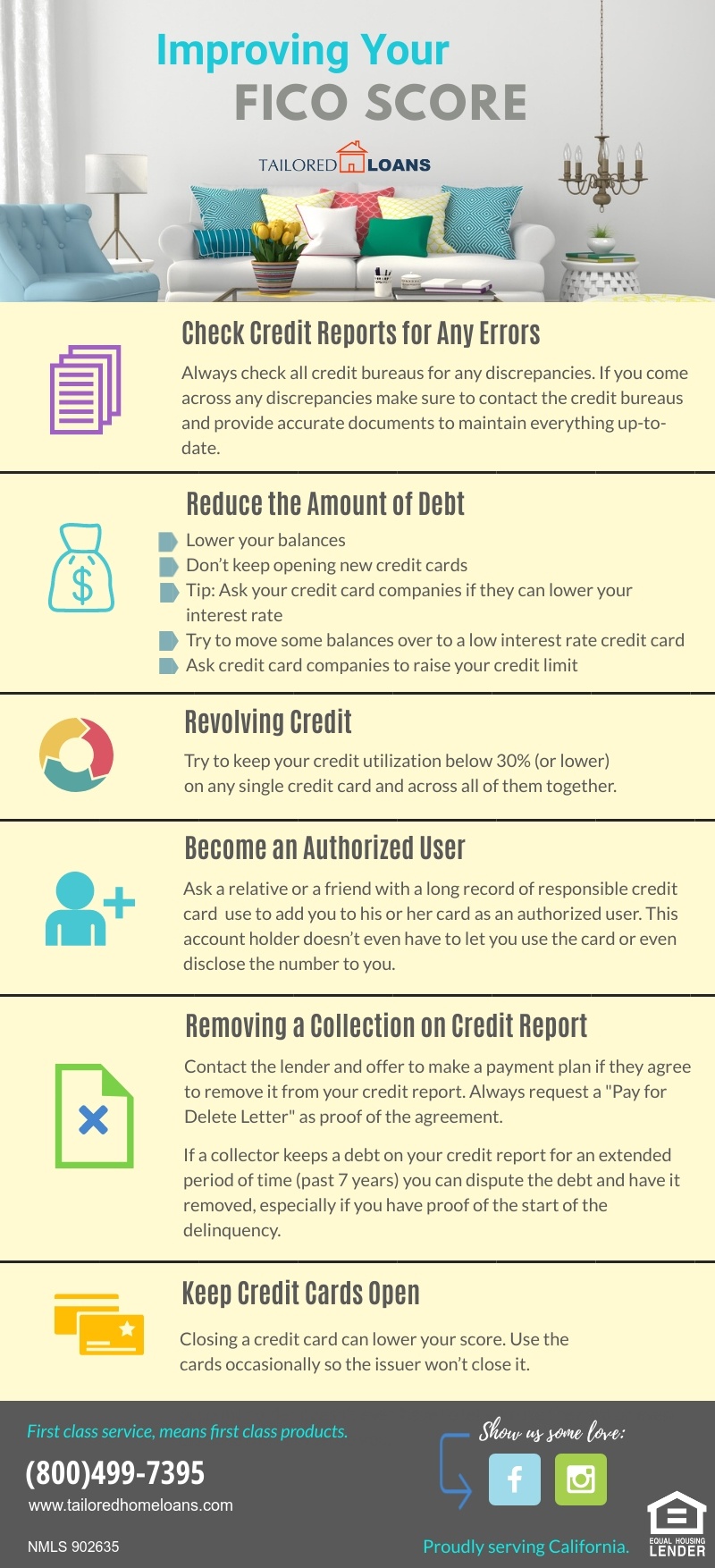
Everyone wants to know where the FICO Score originated from and what in the world is an actual FICO Score?
A FICO Score was created by the Fair Isaac Company, which is a data analytics company based in San Jose. A FICO Score is a three-digit number based on the information in your credit reports. It helps lenders determine how likely you are to repay a loan, which also determines how much you can borrow, how many months you have to repay and how much the interest rate will be.
Building and maintaining your credit score helps you qualify for loans or credit cards.
Check Credit Reports for Any Errors
Yes, you read that correctly. Always go over all 3 credit bureau reports (Equifax, Experian, Transunion), there is a possibility that there is small or large discrepancy that can affect your credit score. A lot of times we neglect viewing an actual credit report until it’s time to purchase a home, then become surprised about an error and are rushing to get it fixed. It is recommended to check your credit at least once a year. Federal law allows you to request a free report from each of the national credit reporting companies once every 12 months at www.annualcreditreport.com. It can help you detect and dispute errors, stop identity theft and credit card fraud early on and save you money. If you do ever come across any discrepancies, immediately contact the credit bureaus and provide accurate documents to maintain everything up-to-date.
Reduce the amount of Debt
- Lower your balances.
- Don’t keep opening new credit cards.
- Tip: Ask your credit card companies if they can lower your interest rate.
- Try to move some balances over to a low interest rate credit card.
- Ask credit card companies to raise your credit limit.
Removing a Collection on Credit Report
- Contact the lender and offer to make a payment plan if they agree to remove it from your credit report. Always request a “Pay for Delete Letter” as proof of the agreement.
- If a collector keeps a debt on your credit report for an extended period of time (past 7 years) you can dispute the debt and have it removed, especially if you have proof of the start of the delinquency.
Keep Credit Cards Open
Closing a credit card can lower your score. Use the cards occasionally so the issuer won’t close it.
Always Pay Bills on Time
Tip: If you ever accidentally forget to pay your monthly credit card bill, call the creditor and request to not report the missing payment to the credit bureaus. Also request to get the late fee waived, a lot of times they honor this request if you have never been late.
Revolving Credit
Try to keep your credit utilization below 30% (or lower) on any single credit card and across all of them together.
DTI Ratio (Debt-to-Income Ratio)
Is a calculation of how much of your monthly income is devoted to debt payments and other financial obligations. Your DTI is a big factor that lenders use to decide whether to lend to you because it indicates shows how you will be able to take on another financial obligation.
Become an Authorized User
Ask a relative or a friend with a long record of responsible credit card use to add you to his or her card as an authorized user. This account holder doesn’t even have to let you use the card or even disclose the number to you.



Comments are closed.